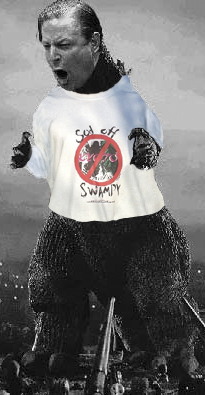Standards At The NYT
When it’s a NYT employee who’s in danger, well, golly, they’re just all mum and agonized and the very souls of discretion
NEW YORK (AP) – Deciding not to report initially on reporter David Rohde’s capture by the Taliban for seven months was “an agonizing position that we revisited over and over again,” New York Times executive editor Bill Keller said Sunday.
“All along, we were told by people that probably the wisest course for David’s safety was to keep it quiet,” Keller said in an interview on CNN.
The Times reported Saturday that Rohde escaped from seven months in captivity in Afghanistan and Pakistan by climbing over a wall on Friday.
Rohde was abducted Nov. 10 along with an Afghan reporter and a driver south of the Afghan capital of Kabul. The Times kept the kidnapping quiet out of concern for the men’s safety, and other media outlets, including The Associated Press, followed suit at the Times’ request.
“It was an agonizing position that we revisited over and over again,” Keller said in the CNN interview with Washington Post media critic Howard Kurtz. “But I also have a responsibility for the people who work for me. I send a lot of people out into dangerous places and their security is also part of my job.”
But when it’s a Republican President’s policy that is protecting 300 million people, well, heck, let the sun shine in and the People have a right to know
In a stunning break with her party, the ranking Democrat on the House Intelligence Committee said Sunday that the New York Times damaged national security by revealing the National Security Agency’s top secret terrorist surveillance program authorized by President Bush.
“If the press was part of the process of delivering classified information, there have to be some limits on press immunity,” Rep. Jane Harman told NBC’s “Meet the Press.”
But don’t worry: Bill Keller still “agonized” before hitting the “publish” button
KELLER: One of the assumptions that was built into the “Journal’s” editorial is that, you know, when the president tells you that there’s a national security reason for not publishing something, you should take that at face value. And, you know, we certainly believe that presidents are entitled to respective, attentive hearings, particularly in matters of national security. And we gave the White House every opportunity to explain why they thought publishing this information would be harmful. We agonized over it. We, as you say, held the story, and we kept reporting.
Priorities, folks.
